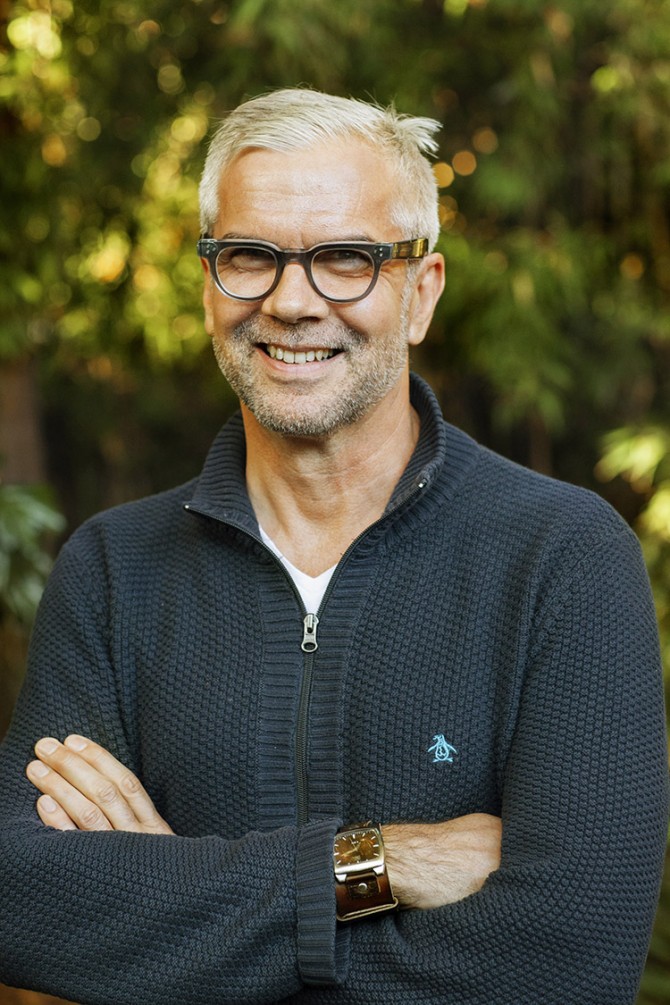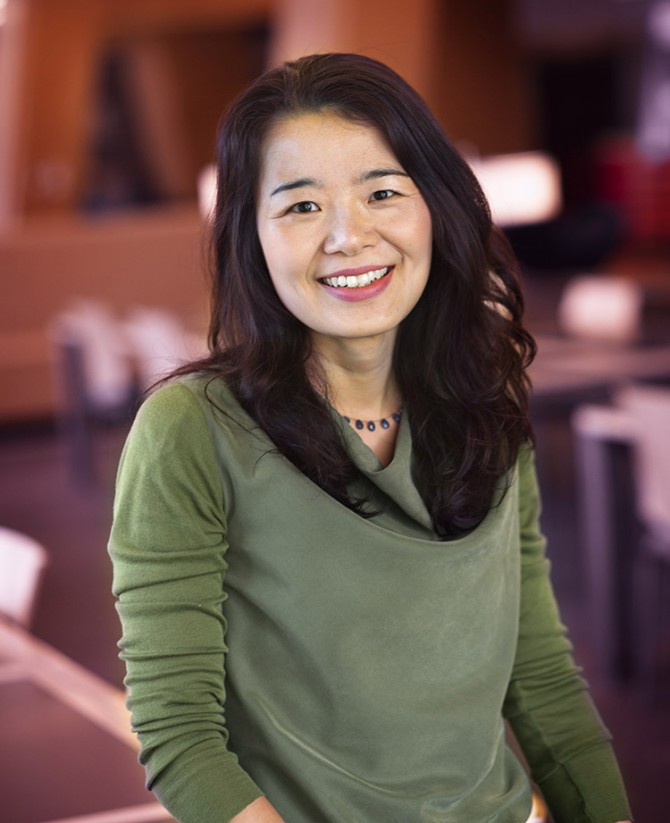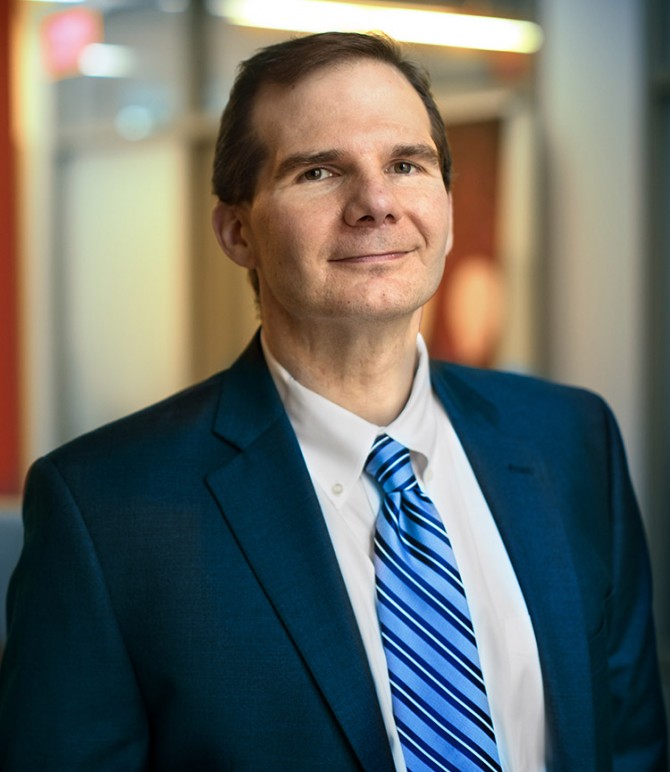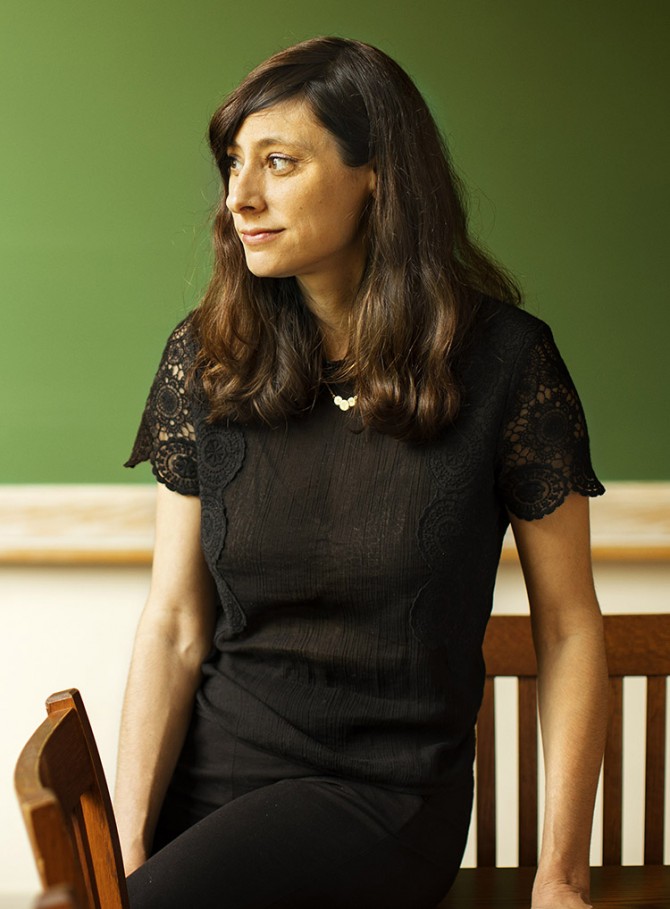Faculty Profiles
Garrett van Ryzin: Radical thinking to get us from point A to B
Finding the most efficient way to move humans around cities and the world has motivated Garrett van Ryzin throughout his career. Transportation is a basic human need, says the recently appointed professor of operations, technology and information management at Cornell Tech and the Cornell SC Johnson College of Business.
Working with global companies, including major airlines and most recently Uber Technologies, van Ryzin has tackled an array of complex issues in transportation, from routing to pricing.
“You’re trying to move people through space and time, and I find it quite fascinating, just in terms of the physics of how it works,” he explains. “If you can do a good job of it and make it more efficient, that really adds value to the world.”
Co-author of a pioneering scientific book on revenue management, van Ryzin is a leading scholar in operations research and also has applied his critical thinking to areas such as distribution, retailing and manufacturing.
Prior to joining Cornell Tech, van Ryzin was on the faculty of the Columbia Business School. One of his principal areas of research has been algorithmic pricing, which combines data-driven technology with economic behavioral modeling.
Over his career, van Ryzin has witnessed rapid advances in technology and the birth of new transportation models. One of the most groundbreaking has been Uber Technologies, where van Ryzin continues in his role as head of marketplace optimization advanced development.
Drawing on sophisticated data generated instantly via users’ mobile apps, Uber can map driver and rider locations. Dynamic pricing then encourages drivers to go to the right places and work at the right times, van Ryzin explains.
It is his interest in working in this dynamic space at the intersection of technology and economics that drew him to Cornell Tech.
“I really like what Cornell Tech is doing in terms of focusing on the tech sector and on industries that are super innovative, and then producing research that’s oriented around those industries,” he says.
Helen Chun: Creating a better consumer experience
When Helen Chun, associate professor in the School of Hotel Administration, and her colleagues used to eat at the Saigon Kitchen in Ithaca, they learned that customers would often complain about the excessive noise in the restaurant.
That prompted Chun and So-Yeon Yoon, associate professor of design and environmental analysis in the College of Human Ecology, to survey the customers and were surprised to find that the heightened ambient noise was creating such a negative experience that it lowered their taste perception of the food, their tipping and the likelihood they would return.
The researchers – along with Kate Min, a visiting scholar in the Johnson Graduate School of Management – secured a grant from Cornell’s Institute for the Social Sciences to install noise-absorbent panels on the ceiling, which reduced the sound level by an average of nine decibels. In a later survey, they found the consumers were happier with the food and their tipping had increased.
Understanding how to manage and enhance the consumer experience in the service setting is the focus of Chun’s research. Her work has explored how companies can increase consumers’ enjoyment of an experience before they even arrive at a restaurant, hotel or cruise by sending brochures, video clips or travel phrases in foreign languages.
Chun, who began teaching at Cornell in 2009, was attracted to the Hotel School because of its focus on the service sector and the wide range of resources it offers, such as roundtables with industry leaders.
In a study with her colleague Robert Kwortnik, associate professor in the Hotel School, Chun has also examined the “dark side of consumer behavior” – the pilfering of products from hotels and other venues.
Their research shows consumers often steal products from hotels as keepsakes of a memorable vacation. Chun sees the problem as an opportunity to improve the consumer experience by offering free gifts, such as a bathrobe or a dinner. “The managers have to know the consumers’ underlying motivations and goals when they visit the property,” Chun says. “Then they can decide whether to give them an experience or something tangible.”
– Sherrie Negrea
Chris Forman: Assessing the impact of information technology
Information technology (IT) has transformed the way we shop, work and use our time in the 21st century. But not everyone has benefited equally from the digital revolution.
While the development of the internet has lowered prices of consumer goods and business costs, it has had different effects on urban and rural areas, says Chris Forman, the Peter and Stephanie Nolan Professor of Strategy, Innovation and Technology in the Charles H. Dyson School of Applied Economics and Management.
Residents of rural areas who shop online have access to more products and lower prices than if they had to depend on brick-and-mortar stores in their communities, Forman says. But wages in economically and geographically isolated counties did not rise when local companies invested in IT during the early commercialization of the internet, his research shows.
“A lot of my work has tried to understand the conditions when IT acts more as an equalizer and the conditions under which it exacerbates the pre-existing conditions,” says Forman, who joined the faculty at Dyson in 2016.
In a 2012 study on wage growth, Forman and his co-authors found that workers in counties with high income, large populations, high education levels and concentrated IT use earned better wages after companies invested in internet technology, while those without those conditions did not.
Forman uncovered similar results when he researched the effects of IT on health care organizations and businesses. In a 2014 study, Forman and his co-authors found that hospitals in areas where private companies were intensive users of IT had lower costs when they adopted electronic medical records, while hospitals in other regions did not. Access to workers with expertise in deploying these types of systems was one reason cited for the difference.
Forman says he was attracted to Cornell by the opportunity to work in the new Cornell SC Johnson College of Business. “It seemed like there was a lot of dynamism and excitement about the growth that was going on both in Dyson and in the College of Business more broadly,” he says.
– Sherrie Negrea
Elisha Cohn: A humanistic point of view
Animals, neuroscience, consciousness and medicine: Associate Professor of English Elisha Cohn’s interests range far and wide, all seen through the lens of narrative, her driving passion.
Cohn’s specialty is Victorian literature, because, she says, “it was the first period that consistently saw itself as modern and tried to theorize its own values and its own moment. There’s a great sort of pathos to their enchantment with trying to know everything.”
Her book project, “Animal Lives in the English Novel,” examines the role of animals in 19th- and 20th-century narrative. We tend to think of animals as experiencing their selfhood very differently from us, says Cohn, but how might our thinking about consciousness change if it’s not centered exclusively around humans?
Her second project, “Victorian Brain, Neuroscience and the Novel,” examines the history of neuroscience and consciousness. Cohn began at Cornell in 2011 as the Dick and Dale Reis Johnson Faculty Fellow, a Sesquicentennial Faculty Fellow. “Cornell has been a wonderful fit for me because it has such a diverse student body, with students who are interested and expert in so many different kinds of things and so intellectually curious,” says Cohn.
Bringing students from around the university together was a key goal when Cohn designed her class on literature and medicine. “People practicing medicine benefit from a humanistic point of view,” she says. “We’ve known for a long time that English majors, for instance, are very attractive candidates to medical schools. It’s not just because of the writing skills, but also because of the interpretive skills and the sensitivity to nuance and the willingness to imagine the lives of others that comes with a literary training.”
Collaboration and interdisciplinarity are important to Cohn; she’s hoping to teach in the new cross-college environment and sustainability major offered through the College of Arts and Sciences and the College of Agriculture and Life Sciences. This fall she’s teaching an ecocriticism graduate course that looks at how the Victorian way of thinking about their experience with coal helped form how we now think about climate. “Might there be strategies relevant for us in our literary past?” she asks.
– Linda B. Glaser
This story originally appeared in the fall 2017 issue of Ezra magazine. Read more about recently hired faculty members who embody Cornell's creative vitality here and here.
Media Contact
Get Cornell news delivered right to your inbox.
Subscribe



